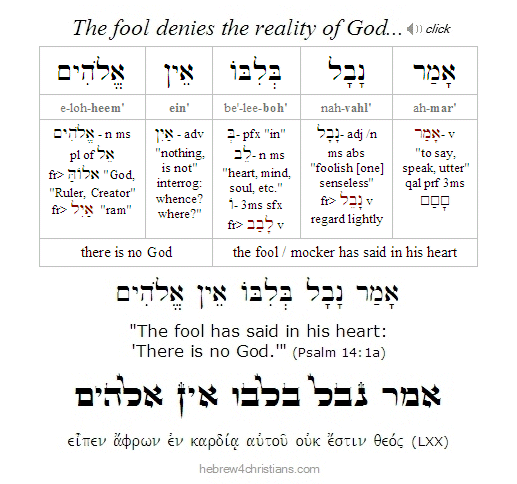|
When the Bible commands us not to "love the world, nor the things that are in the world" (1 John 2:15), we first need to understand what "the world" means, since the term itself requires definition... In English "the world" may refer to: 1) the physical earth itself; 2) the societies and institutions of human beings in general (i.e., the "world of mankind"); 3) a particular period of human history (i.e., the "ancient world"); 4) a specific sphere of cultural or intellectual pursuit (i.e., the "world of art"); 5) the public at large or in general (i.e., "world news"); 6) the physical universe at large (i.e., the "world and everything in it"), and so on. Because of such wide variety of usage, we need to carefully examine the context of a passage when "the world" appears in our Bibles. After all, the same Bible that commands us not to love the world also says that God loved the world so much that He sacrificed His Son so that the world might be saved in Him (John 3:16-17).
The most common word translated "world" in the New Testament is the Greek word kosmos (κόσμος), which is thought to refer to a "harmonious arrangement," an orderly balance, or a symmetry discerned within or imposed upon the primordial chaos (תהוּ וָבהוּ). The ancient (pagan) Greek philosophers regularly used this term to refer to the pattern or "form" of the physical universe, that is, the "cosmological" order of reality... Hence Plato called the kosmos as a "physical reflection" of reason's order (οὐρανὸς), thereby linking it to the operation of the logos (λόγος) or the Divine Intelligence... Perhaps this explains why the ancient Greek version of the Torah (i.e., the Septuagint, or LXX) used the word kosmos to translate the Hebrew word tzava (צָבָא), the arrangement of the stars and the "heavenly host," thereby suggesting a link between celestial order and God's creative activity (Gen. 2:1). The LORD is therefore called Adonai Tzeva'ot (יְהוָה צְבָאוֹת), the LORD of the hosts (or armies) of heaven as well as Ha-Borei Ha'olam, the Creator of the world (הַבּוֹרֵא הָעוֹלָם). We see a related usage when kosmos was used to translate the Hebrew word for "ornaments" or "jewelry" (עֶדְיָם), implying an "arrangement that beautifies" (Exod. 33:6; 1 Pet. 3:3). The English word "cosmetology" (κοσμητικός) derives from this translation.
In the Greek New Testament, the word kosmos is a general term that refers to the "world" or "sphere" of something, such as the totality of the creation (Acts 17:24; John 17:5), the "kingdom" of men and their [demonic] power structures (Rev. 11:15), the nations of the world (Matt. 5:14, Rom. 1:8, Col. 1:6; 1 John 4:14), the transient stages of human history (1 Cor. 7:31), and so on. The word is also used to earthly possessions and values, what we might describe as "worldliness" or the desire for material possessions, prestige, power, and so on (Mark 8:36; 1 Cor. 1:20) -- as well as the underlying philosophy of life that incites people to live according to these transitory and vain values (James 4:4; 1 John 2:15-17).
In the apostle John's writings, kosmos often represents the collective condition of lost humanity that is in direct opposition to God, a defiant social world characterized by spiritual "darkness" that is ruled by the devil (John 3:16-21; 12:31; 16:11). Yeshua spoke of two basic "worlds" - the spiritual world "above" and the earthly world "below." "You are from below (ἐκ τῶν κάτω), I am from above (ἐκ τῶν ἄνω); you are of this world (ἐκ τούτου τοῦ κόσμου), I am not of this world" (John 8:23). It is important to note that for John, these two worlds are presently active and intersecting in daily experience, and therefore salvation and judgment occur in the present - not in some far-off future state (1 John 2:8; John 3:18). The general outworking of human history is essentially a conflict between the Kingdom of God (מַלְכוּת אֱלהִים) and the kingdom of Satan (John 8:34-6) that is being waged by the "children of darkness" and the "children of light" (Eph. 5:8; Col. 1:13, 1 Thess. 5:5, etc.). Politically speaking, Augustine described the conflict as one between the "City of Man" and the "City of God" (Matt. 11:12). Therefore David asked God to protect him from those who are "set on fire, even the sons of men" (Psalm 57:4) and Yeshua referred to the ruler of this world (ὁ ἄρχων τοῦ κόσμου τούτου) who desired to "eat up his flesh" but who ultimately would be cast out (John 12:31; 14:30). The source of strife, murder, and war, is the spirit that enflames fleshly passions (i.e., hedone: ἡδονή) by creating unrest within the soul (James 4:1-3). Those who are regenerated by the grace of God are "transposed" (μεθίστημι) from the kingdom of darkness into the kingdom of light (Col. 1:13). "Everyone who has been fathered by God conquers the world" (1 John 5:4). Because of the love of God, we overcome the world and its philosophy of death through the victory of the eternal life (חַיֵּי עוֹלָם) we have in Yeshua our LORD (1 Cor. 15:57).
The realm of the "fallen world" -- understood in terms of the "fellowship" (κοινωνία) of darkness -- is something from which we are delivered and of which we are no longer to be enslaved (Col. 1:13). As Yeshua said, "If you belonged to the world, the world would love you as its own" (John 15:19). In other words, we are "in" but not "of" this world (John 17:15), and though we physically coexist with others in this time-space, we are no longer citizens of this fallen world and its underlying value system. We are not to love this world, nor the things this world values, since doing so embraces a philosophy of life that is at war with the Father and contrary to the truth of eternity (1 John 2:16; James 4:4). The fallen world values "the flesh" and the "desire of the eyes" that is patterned according to the "arrogance of life." In other words, it is a "beauty pageant" that esteems others based on their accidental qualities instead of their inner and essential qualities. It values others as means to an end rather than as ends in themselves.... The realm of the flesh is the all-too human, the selfish, the natural, the ordinary, and the tit-for-tat, where love and acceptance are extended in conditional terms (Matt. 5:46-47). In this connection, let me quote from Henri Nouwen regarding slavery to the world and its perverse value system:
At issue here is the question: "To whom do I belong? God or to the world?" Many of my daily preoccupations suggest that I belong more to the world than to God. A little criticism makes me angry, and a little rejection makes me depressed. A little praise raises my spirits, and a little success excites me. It takes very little to raise me up or thrust me down. Often I am like a small boat on the ocean, completely at the mercy of its waves. All the time and energy I spend in keeping some kind of balance and preventing myself from being tipped over and drowning shows that my life is mostly a struggle for survival: not a holy struggle, but an anxious struggle resulting from the mistaken idea that it is the world that defines me.
As long as I keep running about asking: "Do you love me? Do you really love me?" I give all power to the voices of the world and put myself in bondage because the world is filled with "ifs." The world says: "Yes, I love you if you are good-looking, intelligent, and wealthy. I love you if you have a good education, a good job, and good connections. I love you if you produce much, sell much, and buy much." There are endless "ifs" hidden in the world's love. These "ifs" enslave me, since it is impossible to respond adequately to all of them. The world's love is and always will be conditional. As long as I keep looking for my true self in the world of conditional love, I will remain "hooked" to the world - trying, failing, and trying again. It is a world that fosters addictions because what it offers cannot satisfy the deepest craving of my heart." (Return of The Prodigal Son; 42-43)
We see then the connection between worldliness and idolatry, since idolatry essentially involves trying to find your identity, your worth, your satisfaction, and your ultimate fulfillment in the realm of the transitory and the finite rather than in God.... We are (rightly) warned against the vices of "worldliness" and are admonished to abstain from popular culture and its spurious values, but note well that worldliness extends well beyond all this, since it concerns understanding the identity and nature of the person as a whole. The fruit of worldliness is the result of being rooted in this world rather than in God's kingdom. The various desires of the human heart - even the desire for "normal things" like personal happiness in this world - may be regarded as "worldly" if they are devoid of submission to God and His rule. Conversely, even Christian workers may be "worldly" if they base their identity in what they do rather than who they are in the Messiah...
May it please the LORD to keep our hearts from wavering by helping us remember our true identity as beloved His children (1 John 3:1). "If then you have been raised with Messiah, seek the things that are above (τὰ ἄνω ζητεῖτε), where the Messiah is seated at the right hand of God; focus your thoughts on the things above - not on things here on earth - for you have died, and your life has been hidden with Messiah in God. Then when the Messiah, who is your life, appears, you too will appear with him in glory" (Col. 3:1-4).
All of this turns on our faith... If we are spiritually identified with Yeshua, we are "dead" to this age (olam hazeh) and therefore are awakened to a realm that transcends the appeals of carnal flesh (olam habah). We no longer live chayei sha'ah (חַיֵּי שָׁעָה, "fleeting life") but chayei olam (חַיֵּי עוֹלָם, "eternal life"). The aorist verb "you have died" indicates "you have died once for all," that is, that this is a condition granted by the power and agency of God on your behalf. You don't "try to die" to the flesh; you accept what God has done by killing its power over you through Yeshua... You are dead to this world; you are dead to sin's power; you are set free and no longer enslaved to the deception of the worldly matrix, etc. Now you are made alive to an entirely greater and more powerful order and dimension of reality, namely, the spiritual reality that is not disclosed to the vanity of this age. Therefore we are to consciously focus our thoughts (φρονέω) on the hidden reality of God rather than on the temporal world that is passing away: "For we are looking not to the things that are seen but to the things that are unseen. For the things that are seen are transient (i.e., "just for a season," καιρός), but the things that are unseen are eternal" (2 Cor. 4:18).
May the LORD God Almighty help us know who we are in our glorious Savior Yeshua. Amen.
 |
|



